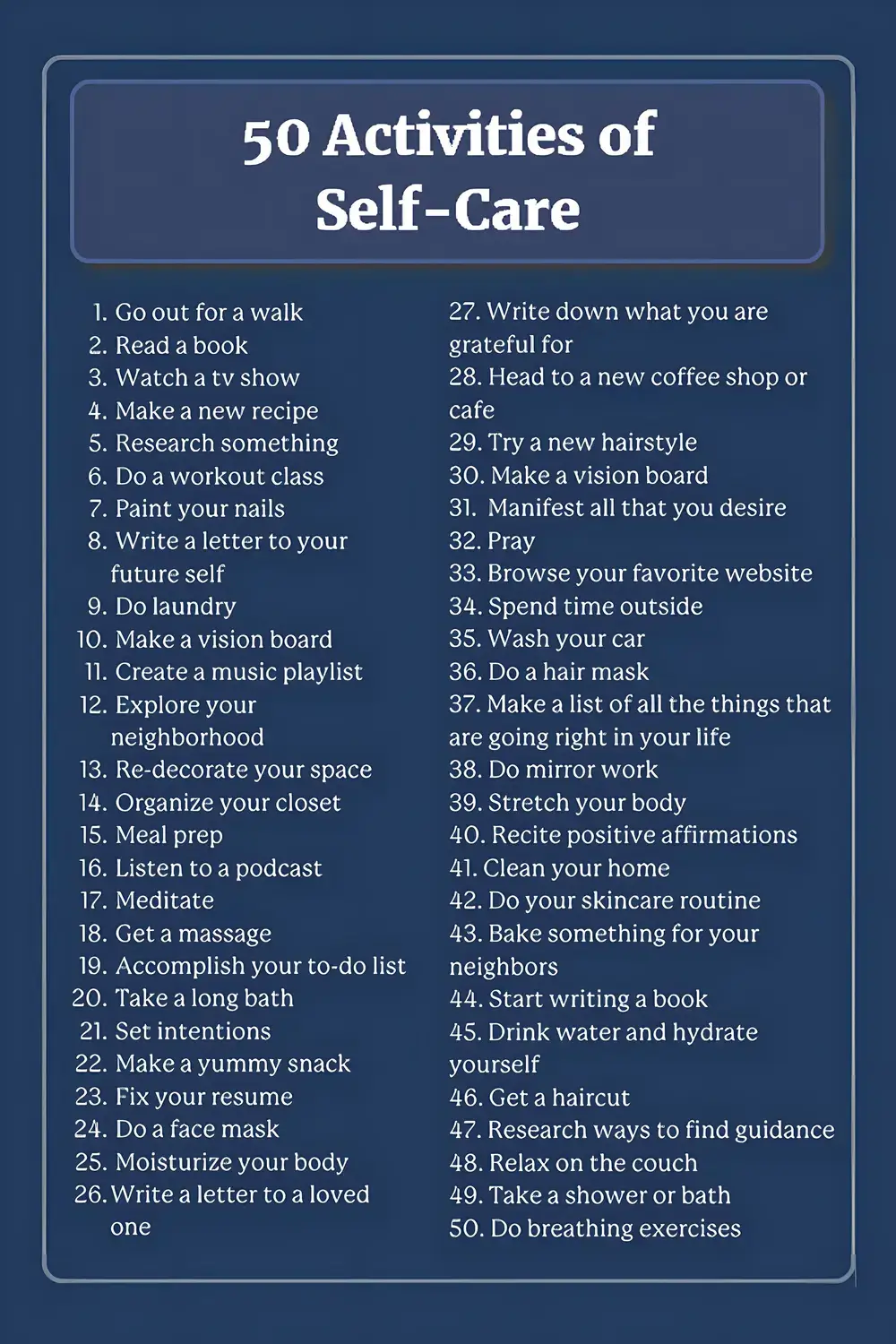Today's Thursday • 10 mins read
— By Dr. Sandip Roy.
Why do we think we can’t be happy without friends?
First, our society puts a high value on social connections to find happiness in life. But our best friendships were formed as teenagers, and most of our later-life friends are formal.
Second, we imagine being alone is like a toy left on the shelf by a grown-up child — sad, neglected, useless. But there’s a difference between loneliness and solitude:
- Loneliness is a sad emotional state. It is the feeling of being isolated and left alone, not actual social isolation. It can sink us into depression, overthinking, procrastination, indecision, and inaction.
- Solitude is enjoyable. It’s like “a peaceful sanctuary for the soul” that lets us enjoy our own company, discover ourselves, and introspect within. We emerge refreshed and reinvigorated from a spell of solitude, with new ideas and insights.
Takeaways:
- You deserve to be happy, friends or no friends.
- Stop depending on others to make you happy.
- Stop waiting for situations to turn good to be happy.
- You don’t have to wear a fake smile to show the world that you’re happy.
- You can learn how to feel less lonely and enjoy living and spending time alone.
So, get to work—teach yourself how to thrive alone, without friends, and enjoy life.

Here are 10 Ways To Be Happy Alone, Without Friends:
1. Change your mindset and embrace singlehood.
Happiness and solitude can coexist. You just need to change your mindset and accept that you can be happy alone.
Embrace self-partnering (treating yourself the same way you would treat someone you were in a relationship with).
Here’s how to embrace being single:
- Have No Regrets: Don’t fear missing out on “greater” joys by being self-partnered. You have some unique benefits in your current situation—make them useful.
- Develop Self-Sufficiency: Feel complete in your own company. Enjoy your independence and the ability to make decisions that suit you.
- Accept Singlehood as a Valid Choice: Understand that being single is a fulfilling lifestyle choice. Enjoy the freedom and flexibility it offers.
“Self-partnering focuses on the ideal of being happy and complete as a solo individual. A self-partnered person would feel whole and fulfilled within the self and does not feel compelled to seek fulfillment through having another person as a partner.”
— Carla Mary Manly, PhD
Some powerful tips to embrace singlehood:
- Have more self-compassion: Be your own best friend. Treat yourself with love and kindness. Criticize yourself less. Don’t believe all the negative things your mind tells you about yourself. Appreciate yourself for how far you have come. Celebrate your uniqueness and believe in your worth.
- Set Personal Goals: Make personal growth and achievements a priority. Set life goals that align with your interests and values. Go about your goals at your own pace. Celebrate your progress. Do things that bring you pure joy (without hurting others). Believe in yourself and your dreams.
- Build a Strong Support Network: Surround yourself with supportive people who uplift and inspire you. Befriend like-minded people, online or offline. Join community events or clubs related to your interests. You don’t have to be friends with them to cherish these non-friend relationships.
- Enjoy Your Freedom: Happily design your life on your own terms. Make the most of the freedom that comes with being single. Travel to new places and explore new interests. Make decisions that align with your personal values and desires, without any need to compromise.
- Stay Positive: Challenge your negative thoughts — your thoughts are not always telling you the truth. Give yourself positive affirmations. Even a simple “I embrace my singlehood” affirmation can help. Work more on your strengths than your weaknesses. Relish the many benefits of being single. Let a positive mindset guide your day and your life.
This study followed 3,439 people over 10 years and found single individuals were generally satisfied with their singlehood and life. Their singlehood satisfaction dropped over time, but so did their life satisfaction.
2. Essential self-care ideas for solitude.
Self-care habits can plug in the gaps in your personal well-being routine to boost your happiness.
Some self-care activities can be:
- assuring yourself you are capable of handling stress
- writing down three things you forgive yourself for
- regular exercise, sleeping more, staying hydrated
- self-compassion, self-love, self-introspection
- accepting things that are beyond control
- getting away from toxic people
- caring for pets and houseplants
- mindfulness meditation

3. Try solo passions.
Solo pursuit of passions can make you happier through flow and solitude.
Find Flow
The “Flow” state is also called the state of optimum happiness. It frees you from past and future worries, fades out the outside world and sense of time, and keeps you deeply satisfied.
For ‘flow’, try these:
- Experiment with a new recipe or perfect an old one.
- Gardening and woodworking can be therapeutic.
- Do some brain-teasers, like giant jigsaw puzzles.
- Challenge your creativity, like painting bulbs.
- Journal your feelings and experiences.
- Play a musical instrument, or sing.
- Go solo traveling.
Rethink Solitude
This 2023 study found when people who felt lonely read that solitude is “beneficial to their well-being,” they felt calmer and more contented after spending 10 min alone. Solitude has been shown to make people happier, better control their emotions, and reduce stress.
For enjoying solitude, try these:
- Get lost in a good book — fiction, non-fiction, comics.
- Practice meditative movements — known to reduce depressive symptoms.
- Go for a walk or a hike, spend time in nature, in the greenery, near a water body.
- Reframe solitude with this self-affirmation: “I embrace solitude as a source of strength. I find peace and fulfillment in my own company.”
4. Exercise for a mood-boost, no crowd needed.
Exercise can make you feel happier both immediately and over time.
It can also reduce feelings of depression, as the science of exercise and happiness shows.
- A 2015 meta-analysis of 97 studies found that exercise was as effective as medication in reducing symptoms of depression.
- This 2024 study says, “Exercise is an effective treatment for depression, with walking or jogging, yoga, and strength training more effective than other exercises, particularly when intense.”
I find these words by the world’s leading happiness scientist Tal Ben-Shahar a valuable reminder,
“In essence, not exercising is like taking a depressant.”
When you work out, your body releases endorphins—our natural “feel-good” hormones. They make you feel happy and calm, and sustain a positive mindset.
So, try to include some physical activity in your day to lift your spirits and reduce sadness and worry.
5. Eat right to enhance solo well-being.
Eating the right foods can help you feel happier and healthier.
The Mediterranean Diet (MD) is currently considered one of the healthiest diets in the world. It can reduce depressive symptoms and improve mental health quality (PREDIMED study and SMILES trial).
Some foods in the Mediterranean Diet are:
- Vegetables like broccoli, spinach, kale, garlic, and zucchini
- Nuts like almonds, walnuts, and cashews
- Yogurt and olive oil
- Fruits like peaches and pears
- Fish like salmon, sardines, and mackerel
- Whole grain bread and a little red wine
Find out What Food Improves Your Mood: Best Foods To Eat For Happiness.

6. Gratitude brings satisfaction on its own.
Science shows that feeling thankful can boost your happiness right away and over time. It can also reduce your stress and help you sleep better.
Positive psychology suggests some simple ways to practice gratitude:
- Keep a gratitude diary where you write down the good things in your life.
- Be grateful for the food on your table, thanking all who made your meal possible.
- Notice and appreciate the positive things in your day, known as counting your blessings.
- Write a gratitude letter to thank someone for their help. Whether you give it to them or not, your happiness gets a boost both ways.

7. Set goals that give your life purpose.
Having goals gives our lives meaning and purpose, making us happier.
Once set, it’s about approaching and working towards our goals:
- Working towards a goal keeps your mind active and engaged, reducing loneliness and giving a sense of accomplishment.
- Reaching a goal makes your journey and efforts feel more worthwhile, and you, more content and proud.
Three tips for setting goals in a way that we can grow and be happier:
- Choose goals that match your values and interests for maximum happiness.
- Break big goals into smaller, manageable steps.
- Write down your goals and track your progress.
Find out the three best techniques to set goals.
8. Find self-joy through learning new skills.
Learning new skills can make you happy, especially if you don’t have close friends.
Identify your passions and look for ways to practice them. Join online communities or find a mentor for more support.
Some tips:
- Get a growth mindset and be open to learning from both successes and mistakes.
- Celebrate your achievements and share your newfound knowledge with others.
- Train yourself to use critical thinking to check if information is reliable.
- Set specific times each day for learning.
An attitude of curiosity and discovery helps you know more and grow more. And makes you happier.
9. Feel fulfilled through volunteering.
Volunteering is a great way to meet people and help them with causes you care about.
It’s not just about giving back. It also makes your life more meaningful, helping you feel connected to a greater purpose in life.
When you volunteer, you pick up new skills and see new perspectives. It’s a rewarding experience to find happiness when you have no friends.
Some tips to get started:
- Find local organizations that need volunteers, like animal shelters, food banks, or community centers.
- Choose causes that you are passionate about to make the experience more meaningful.
- Look for online volunteering opportunities if you prefer to help from home.
- Invite others to join you, or make new friends with fellow volunteers.
- Reflect on your experiences and how they make you feel.
- Set aside regular times each week to volunteer.

10. Unplug to connect with yourself.
We spend too much time on screens today, because of FOMO (fear of missing out).
We need to fix this.
Research shows limiting social media use to approximately 30 minutes per day can significantly improve well-being, and reduce loneliness and depression (Hunt & Marx, 2018).
Instead of scrolling through feeds, try these activities to manage your screen time and feel better:
- Force yourself to replace screen time with fulfilling activities and meaningful interactions.
- Set specific times to check social media feeds, avoiding constant updates.
- Prioritize self-care routines like showering, dressing, and healthy eating.
- Practice mindfulness through meditation, yoga, or quiet reflection.
- Create personal screen time boundaries that fit your lifestyle.
- Connect with nature by walking or spending time outdoors.
- Indulge in creative pursuits like crafting or photography.
- Find screen-less ways to relax when bored or stressed.
- Make quality time for family and friends.
- Get adequate sleep and rest.
Bonus: Seek professional help if nothing seems to help.
Being alone doesn’t mean you have to suffer alone in silence.
Your life is yours, and you have the right to find ways to a more joyful life.
Please don’t hesitate to consult a mental health professional if you’re having trouble coping with your loneliness or sadness.
Final Words
Happiness is a personal journey. What works for another may not work for you.
- An introvert may not find it soul-raising to volunteer for social causes.
- An extrovert may find it difficult to practice mindfulness meditation without a guide.
Try different strategies and see which ones work best for you.
Start by being your best friend.
√ Also Read: 10 Greatest Happiness Hacks From Positive Psychology
√ Please spread the word if you found this helpful.
• Our Story!

